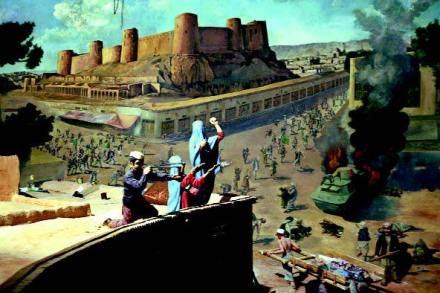Stalin: Not Such a Bad Chap Really
That, anyway, seems to be one of the things to come out of Terry Eagleton’s new book, Why Marx Was Right. It’s not published until May but Tyler Cowen reports that it contains these winning arguments: But the so-called socialist system had its achievements, too. China and the Soviet Union dragged their citizens out of economic backwardness into the modern industrial world, at however horrific a human cost; and the cost was so steep partly because of the hostility of the capitalist West. […] Building up an economy from very low levels is a backbreaking, dispiriting task. It is unlikely that men and women will freely submit to the hardships





